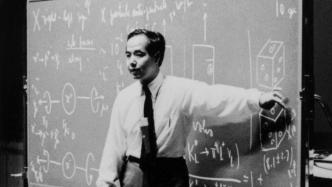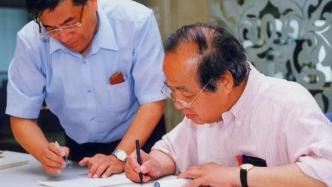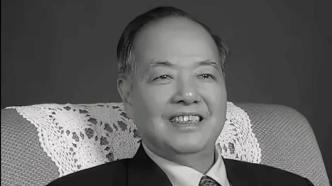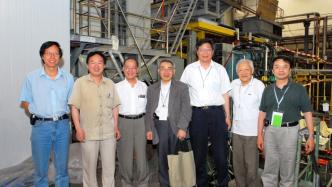
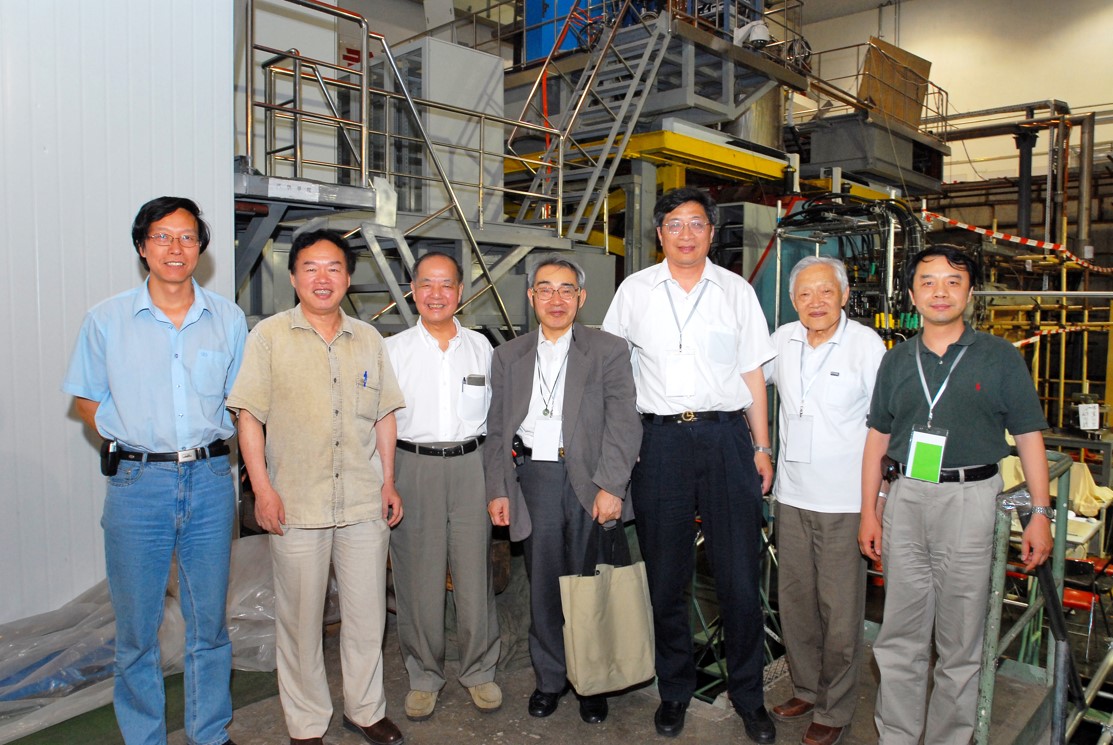
On the evening of June 11, 2007, Mr. Tsung-Dao Lee (third from left) visited the superconducting magnet development site.
In the early morning of August 4th local time, Chinese-American physicist, foreign academician of the Chinese Academy of Sciences, and Nobel Prize winner in Physics, Mr. Tsung-Dao Lee, passed away at his home in San Francisco, USA, at the age of 97.
On the evening of August 5th, Beijing time, Wang Yifang, academician of the Chinese Academy of Sciences and director of the Institute of High Energy Physics of the Chinese Academy of Sciences, accepted interviews from multiple media outlets including The Paper to mourn Mr. Tsung-Dao Lee.
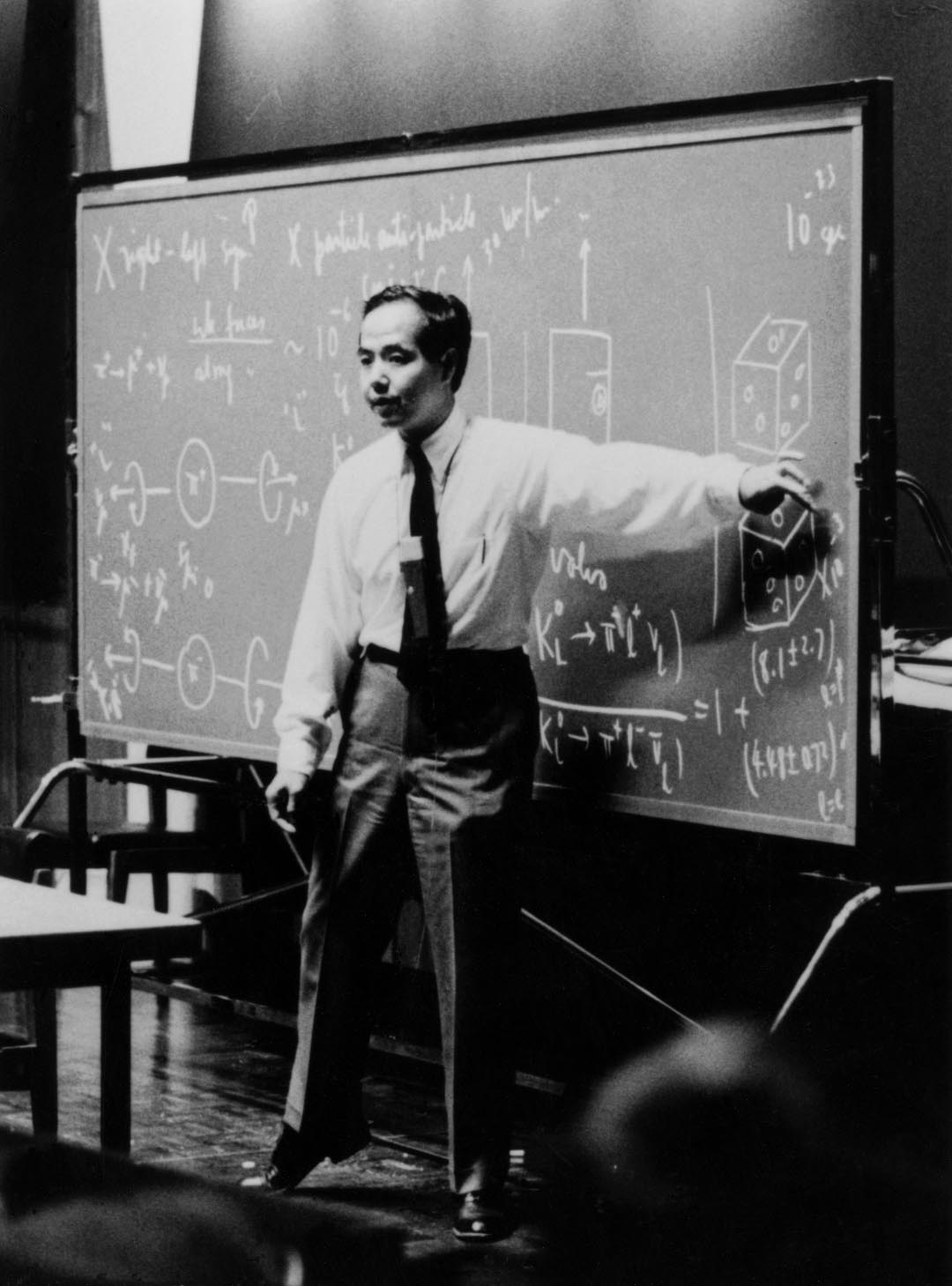
Tsung-Dao Lee giving a speech at CERN in 1968. Photo by Visual China
"His contribution to China's high-energy physics cannot be described in words." "With his help, our high-energy physics research has made great progress. Now we can get rid of the crutches and do many things," said Wang Yifang.
Wang Yifang said that Mr. Tsung-Dao Lee was a great scientist, a very effective promoter of China's science and education, a humble, elegant and noble person, and he was very respectable.
"Including the postdoctoral (system) that everyone knows, the establishment of the National Natural Science Foundation of China, the 'China-US Joint Training Physics Graduate Examination Program' (CUSPEA), and the junior class, they were all proposed by him... In fact, if a person can accomplish one of these things in his lifetime, it is already remarkable. And he has done so many things. And I know that he has actually put a lot of energy and effort into each of these things." Wang Yifang said.
Wang Yifang said in response to a question from The Paper, "I think the best way to remember Mr. Tsung-Dao Lee is to realize his dream and make Chinese science and Chinese high-energy physics (research) the world's leading."
A great scientist
Wang Yifang said that Mr. Tsung-Dao Lee was first and foremost a great scientist who made very important discoveries in physics.
In 1956, Tsung-Dao Lee and Chen-Ning Yang proposed the theory that parity is not conserved in weak interactions. After experimental verification the following year, they jointly won the Nobel Prize in Physics and the Einstein Prize in Science. His research work has had a profound impact on the development of particle physics and quantum field theory.
The obituary jointly issued by the Tsung-Dao Lee Institute of Shanghai Jiao Tong University, the Tsung-Dao Lee Library of Shanghai Jiao Tong University, and the China Advanced Science and Technology Center wrote that as one of the physics masters who pioneered the history of Chinese winning the Nobel Prize, Mr. Tsung-Dao Lee was rigorous in his academic career of more than 60 years. He strived for breakthroughs in many fields such as quantum field theory, elementary particle theory, nuclear physics, statistical mechanics, fluid mechanics, astrophysics, etc., constantly climbed to the peak of science, sought truth and facts, and made lasting and clear contributions to the development of physics.
An effective promoter
"Do it yourself" is the word Wang Yifang mentioned most often when mourning Mr. Tsung-Dao Lee.
"If it weren't for him, the Beijing Electron-Positron Collider probably wouldn't have been built, or it would have been delayed for a long time, or there would have been big quality problems," said Wang Yifang.
"Mr. Li overcame all difficulties and personally helped the Institute of High Energy Physics accomplish this, and it was very successful." "So, at that time he was called 'Political Commissar Li' at the Institute of High Energy Physics, and we would look for him when we had something to do." Wang Yifang introduced that the Beijing Electron-Positron Collider began construction in 1984 and was completed in 1988. It was also modified in the middle and is still in use and running. It will run until 2030, and it is likely to continue to run after that. "The cost-effectiveness of this device is huge if you consider its 50-year scientific lifespan." "What kind of accelerator will China choose to be the most successful? Looking back after more than 40 years, we feel that the choice at that time was the best choice." "So his contribution to China's high-energy physics should be said to be indescribable in words."
"Things like the postdoctoral system and the CUSPEA program are not something that can be accomplished by just writing a letter or saying a few words." "There are many things to do, (and) they need to be pushed forward many times." "He did it himself, pushed it forward personally, and ensured that all the details were implemented to make this thing happen." "I think Mr. Li is a very down-to-earth person. Although he is a theoretical physicist, what he does is very specific, very realistic, and very thoughtful. So he will personally do a good job in the things he promotes and the issues he pays attention to, which is very worthy of our learning." Wang Yifang said.
The article published by the Tsinghua Alumni Association states that in March 1983 and May 1984, Mr. Tsung-Dao Lee wrote to Chinese state leaders twice, suggesting that a postdoctoral research station be established in China and that a postdoctoral system be implemented. Mr. Lee's suggestion attracted the attention of state leaders, relevant government departments, and the scientific and educational communities.
A person of high moral character
In his eulogy, Wang Yifang said, "I think he was a man of very noble character. When he considered all these things, when he did all these things, he never considered his personal interests, and never thought of any personal gains from them. He was also very humble and elegant. Over the past few decades, he has made such great contributions to China. When he was older and felt that he could no longer contribute to China, he no longer appeared in public and no longer came to China to participate in various social public activities. He always considered whether what he did contributed to the country, our science and education, and our scientific research. So, I think he is indeed a very remarkable person, very touching and very respectable."
"He bet his entire reputation on it," Wang Yifang said, because many people at the time did not believe that China could build a high-performance accelerator.
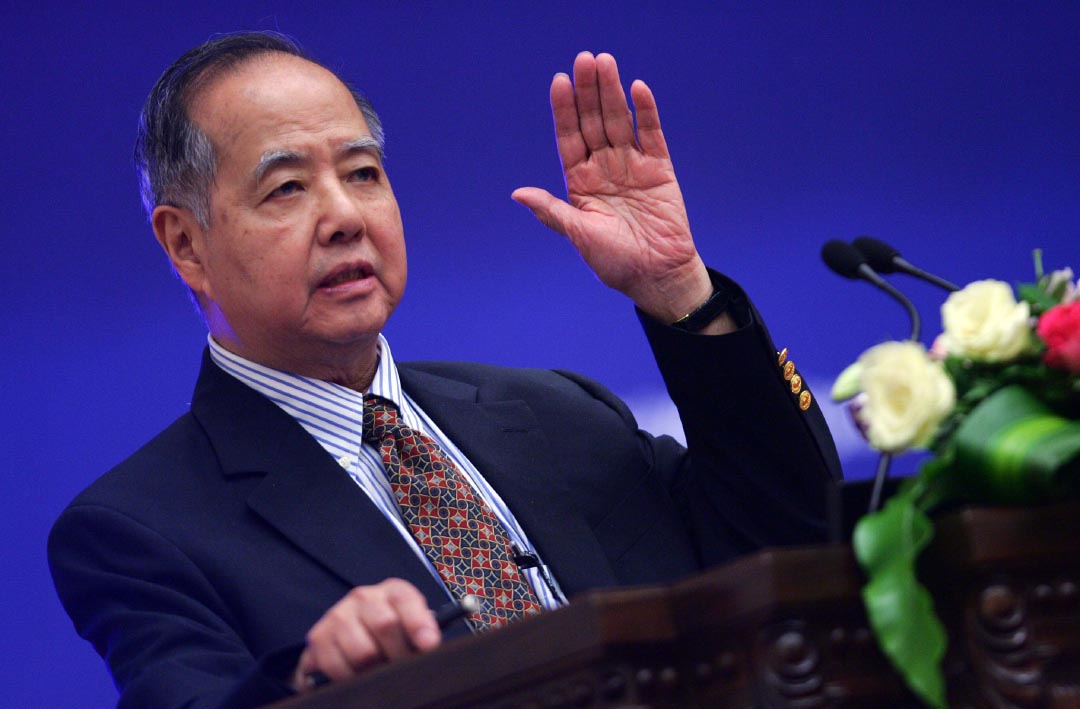
On September 5, 2006, the "2006 Nobel Prize Winners Beijing Forum" opened at the Great Hall of the People in Beijing. Nobel Prize winner Tsung-Dao Lee gave a speech on "Basic Scientific Research and How to Cultivate Talents." Visual China Photo
In the article "Mr. Tsung-Dao Lee and the Development of High-Energy Physics in China", Wang Yifang wrote, "Mr. Lee supported the Beijing Electron-Positron Collider, took on tremendous pressure and risks, and devoted all his efforts and wisdom. In the Chinese high-energy physics and accelerator community, which had almost no foundation, building an electron-positron collider with a brightness one order of magnitude higher than SPEAR (SPEAR is the accelerator that discovered tau and charm and won two Nobel Prizes) was simply a fantasy in the eyes of many people. But Mr. Lee staked his reputation and devoted himself to this cause. He carefully analyzed the pros and cons and the factors of success and failure, used his influence to create various channels, and spent a lot of energy to promote and organize the five national laboratories of the U.S. Department of Energy to support and help China build accelerators and detectors in physics, technology, engineering, and talents. He also personally participated in various discussions to assist in discovering and solving various problems, big and small, and promoted the growth of China's high-energy physics and accelerator teams."
